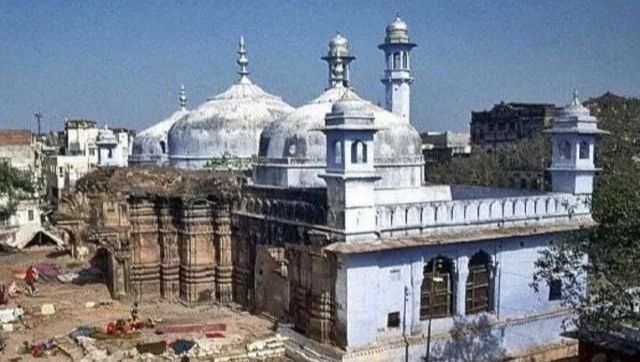The Varanasi District Court on Friday allowed the Scientific survey of the entire premises of Gyanvapi mosque except for Wuzukhana by the Archaeological Survey of India (ASI) to find out whether the mosque had been built on an already existing structure of a Hindu temple. The court has ordered the ASI to submit its report by August 4. The Court has directed that the Scientific survey by ASI should take place between 8 and 12 am and, clarified that there will be no restrictions on namaz and no damage should be caused to the mosque. “I have been informed that my application has been approved and the court has directed to conduct an ASI survey of the Gyanvapi mosque complex, excluding the Wazu tank which has been sealed,” lawyer Vishnu Shankar Jain, representing the Hindu side in the Gyanvapi mosque case said. “It’s a turning point in the case,” said Advocate Subhash Nandan Chaturvedi, who is also representing Hindu side in the Gyanvapi case. A videographic survey of the Gyanvapi complex, located next to the Kashi Vishwanath temple, was conducted last year in which it was revealed what the Hindu side claimed was a ‘Shivling’ inside the mosque premises. The Muslim side has insisted that the structure is merely a fountain. The court of District Judge AK Vishwesha on Friday pronounced the order after hearing both parties on July 14. An application was filed by four Hindu women worshippers seeking a scientific survey of the entire Gyanvapi mosque premises by ASI. In May this year, the application before the Court under Section 75(e) and Order 26 Rule 10A of CPC by the four Hindu women worshippers in a suit pending before the Varanasi Court seeking all year-round worshipping rights in the Gyanvapi Mosque premises. The application of the Hindu women worshippers also stated that Swayambhu Jyotirlinga existed at the site in question (Gyanvapi Mosque Premises) for lakhs of years, however, the same was destroyed/damaged several times by Muslim Invaders who had hatred against infidels and idol worshippers beginning with the attack of Mahmud Ghazni in 1017 AD. With inputs from LiveLaw
The court allowed ASI to survey the entire premises of Gyanvapi mosque except for Wuzukhana to find out whether the mosque had been built on an already existing structure of a Hindu temple
Advertisement
End of Article
Written by Umang Sharma
Umang Sharma is a media professional with over 12 years of experience. Crafting compelling content and using storytelling techniques are his strengths. His interest lies in national, global, political news and events. see more


)

)
)
)
)
)
)
)
)



